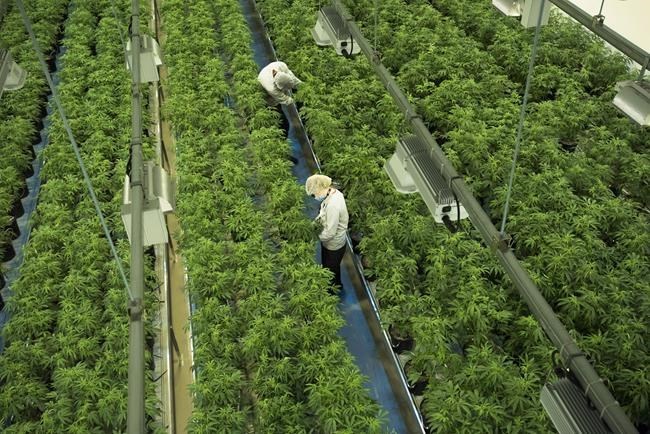Canopy Growth Corp. reported a $42-million net loss in its most recent quarter, which its chief executive said was spent making "significant and sweeping changes" that left the cannabis business "simplified, asset-lite" and ready to complete in the turbulent pot market.
Among the changes David Klein trumpeted on a Wednesday call with analysts were a divestment of Canopy's retail cannabis business to reduce the company's complexity; the closure of several facilities to leave cultivation to two, purpose-built sites; and the outsourcing of production of edibles, vapes and beverages, which will help accelerate the time it takes to get items on shelves.
"While we're pleased with the significant progress already made, our work to complete the transformation of Canopy Growth is not yet done," he said.
"Over the next weeks and throughout the remainder of the year, we'll continue to execute on opportunities to drive efficiencies and reduce expenses."
In its most recent quarter alone, Canopy said it had managed to cut $47 million in costs, bringing the reductions it has eked out since the start of its previous fiscal year to $172 million.
Many of those savings have come from 800 workers — about 35 per cent of the company's workforce — who were laid off in February and from the wind-down of Canopy's flagship 1 Hershey Dr. facility in Smiths Falls, Ont., where the business is based.
Altogether, the transformation plan has resulted in a 60 per cent reduction in Canopy's cultivation footprint and total head count, Klein said.
"We fundamentally believe this model will enable us to compete more effectively," he added.
Yet the company still reported Wednesday a $42-million net loss in its first quarter.
That figure, however, was down from a net loss of roughly $2.1 billion a year ago.
The net loss for the three months ended June 30 amounted to a loss of about seven cents per basic and diluted share compared with a loss of $5.24 per basic and diluted share a year ago.
Revenue in the quarter totalled $121.1 million, up from $118.7 million in the first quarter of the prior fiscal year.
The pot company attributed the increase to higher revenues within its BioSteel sports drink business and growth in its vaporizer brand Storz & Bickel and the Canadian medical cannabis market, where revenues were $38.6 million alone.
Storz & Bickel, which saw an expansion of its distribution and retail channels in the U.S. during the quarter, made Canopy $18.1 million, up 16 per cent from a year ago.Â
Meanwhile, BioSteel revenues jumped by 137 per cent from a year earlier to $32.5 million because of a National Hockey League partnership and an expansion of the company's Canadian grocery, convenience and gas station distribution.
These wins were offset by a drop in Canadian adult-use, business-to-business revenue, which fell 38 per cent year over year to $24.2 million. Canopy attributed the tumble to the company shifting away from low-margin value-priced products.
It also said its revenue was affected by lower international medical cannabis sales due to bulk sales in Israel.
This report by The Canadian Press was first published Aug. 9, 2023.
Companies in this story: (TSX:WEED)
Tara Deschamps, The Canadian Press



